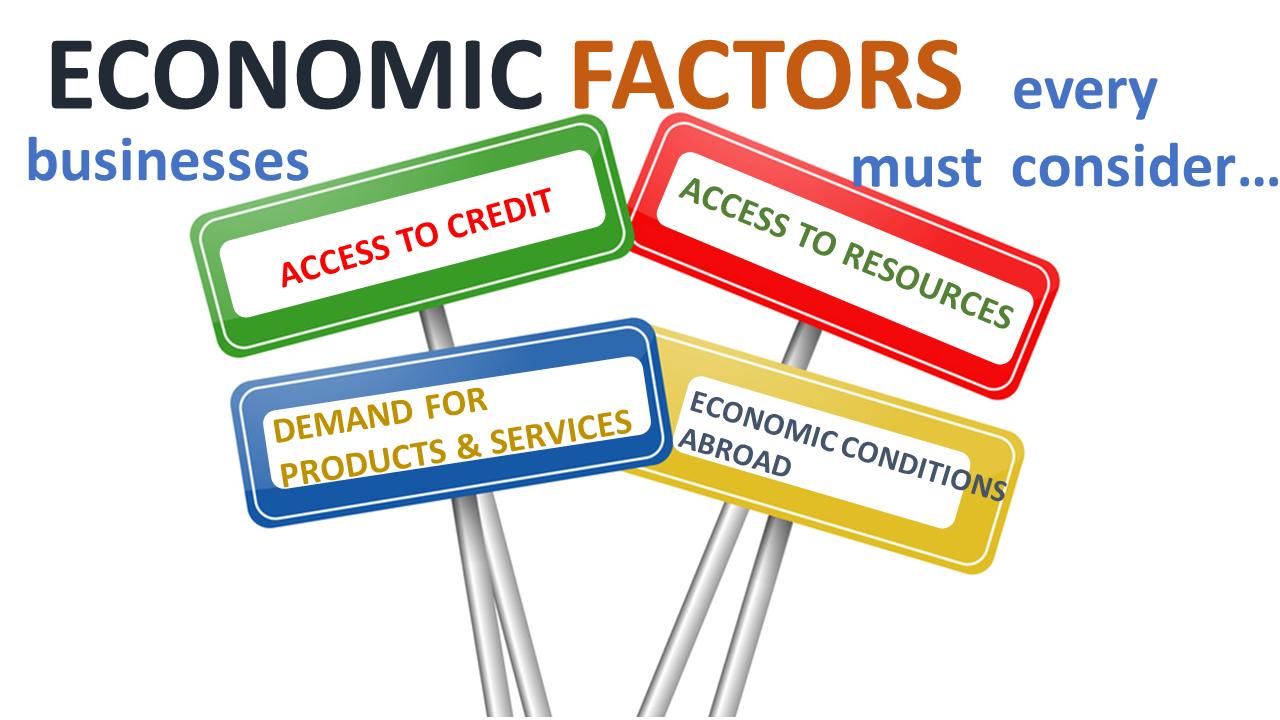Countless studies spanning a variety of industries have clarified the conditions necessary for a business to succeed. These conditions can generally be classified as internal or external to a company.
Company management has significant influence over internal factors. Management’s decisions, for example, impact the quality of products and services, the quality of labor and business strategy.
External factors, however, are largely beyond the control of company executives. These factors tend to be influenced by powerful economic and political forces.
Entrepreneurs should carefully consider these external factors, especially during the launch phase of the business when firms are most vulnerable. They should also take note of how conditions vary by country and even by province and municipality as regulations and market conditions usually differ by region.
Assessing these factors can admittedly be challenging, particularly given their vast quantity and complexity. A few factors, however, are of particular importance. Appropriately taking these into consideration can go a long way towards ensuring the success of your business.
Economic factors affecting businesses globally
Access to credit
One factor to consider is access to finance or credit. While enough owners’ equity is an important source of capital, credit is often a more viable source of funds for expansion and further investment. Different studies and surveys show that access to credit is one of the biggest problems faced by small and medium businesses. Because many startup businesses do not have substantial fixed assets, they cannot afford to take out loans due to lack of collateral. To assure access to credit, businesses should maintain sound finance and invest in assets that can be collateralized. Low interest rates, low cost and ease of obtaining credit, and availability of credit institutions are some of the favorable conditions for startups in terms of access to finance.
Access to resources
Fledgling businesses should also take into account availability of resources. The term “resources” covers a wide range of materials necessary for a business’s operation. Fuel, raw materials, and technology are all examples of resources. Ideally, these inputs should be easily obtainable at an affordable price.
Business owners should anticipate and prepare for potential supply disruptions before entering a particular region. Businesses operating in Florida, for example, should take into account the frequency of hurricanes and how that may impact supply chains. Companies doing business in Russia should consider the potential impact of sanctions or political instability.
Resource availability can fluctuate depending on environmental, political and economic circumstances.
Demand for products and services
Demand for products and services naturally plays a role in business owners’ calculations. Demand is largely determined by the needs and preferences of consumers in specific markets. For example, an entrepreneur doing business in a university town should consider what appeals to students. Students love affordable housing, public transportation, and alcohol. A business that addresses these needs stands a good chance of succeeding. On the other hand, a fancy French restaurant or luxury hotel may struggle in a student community.
Demand is also affected by broader phenomena. These phenomena include evolving consumer preferences, inflation, changes in household income and changes in interest rates, among other factors. The sudden onset of inflation, for example, may constrain purchasing power. Changes in consumer preference may reduce demand for particular products and services while increasing demand for others. Entrepreneurs should always keep an eye out for changes in demand that could affect the bottom line.
Economic conditions abroad
Entrepreneurs must also consider economic conditions abroad, regardless of whether or not they have business interests abroad. Those who export their products should watch out for sudden downturns in demand in target destinations. This may occur during wars, economic crises or the emergence of more appealing alternative products. Those who import resources and inputs should keep an eye out for developments that could obstruct their supply chain. In addition to the aforementioned factors, supply chain natural disasters, fluctuations in shipping costs, or changes in international trade regulations could trigger such developments.
Even those who cater solely to domestic consumers may be affected by economic factors abroad. Fluctuations in oil prices, for example, tend to significantly impact a wide range of industries. The rise and fall of fuel prices impact the cost of transportation which in turn influences various supply chain-associated expenses.
The factors discussed in this article affect both startups and well-established businesses. Young businesses, however, are particularly vulnerable to circumstances beyond their control. Many budding businesses can fail even if their executives are business savvy and market high-quality products. It is essential that entrepreneurs recognize the importance of both internal and external business catalysts and develop a strategy accordingly.











